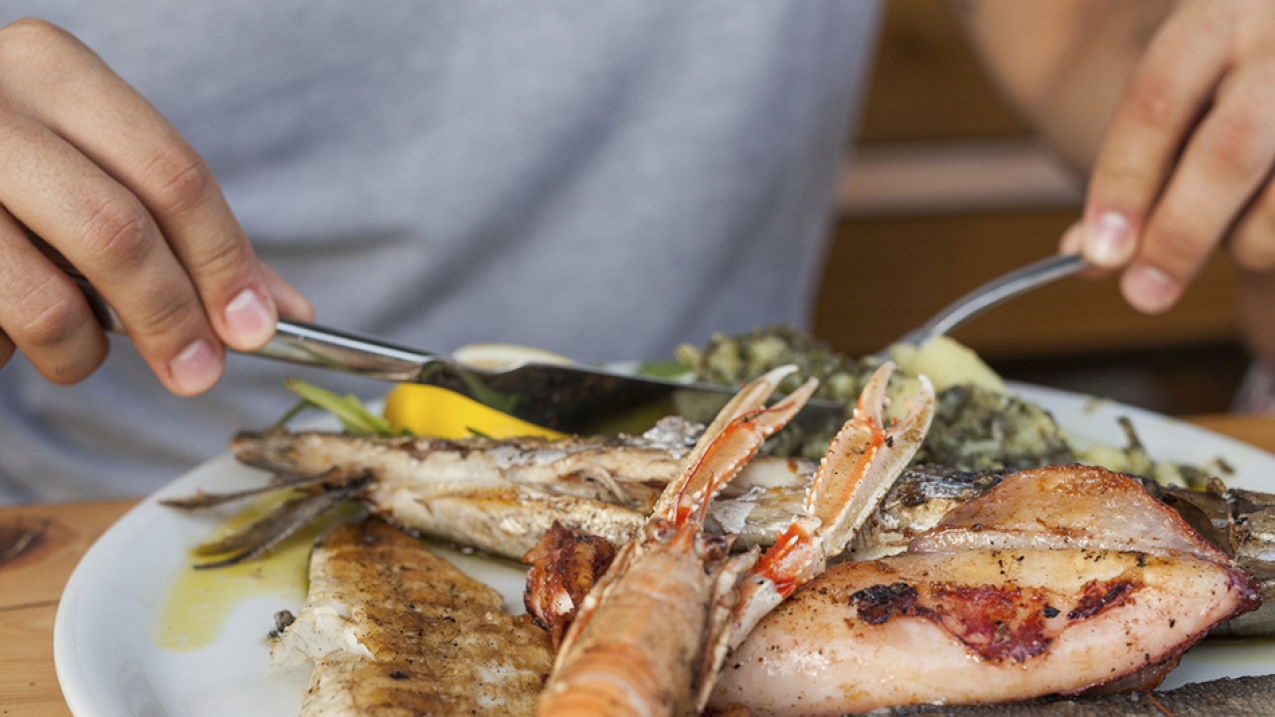Report shows continued stability, sustainability in U.S. fisheries; some declines in West Coast stocks

Enjoying a seafood dinner. (Image credit: iStock)
2015 was another above-average year for fishing and seafood consumption, with the average American adding nearly an extra pound of seafood to their diet, according to the annual Fisheries of the United States report released today by NOAA.
Across the nation, U.S. fishermen landed 9.7 billion pounds of fish and shellfish valued at $5.2 billion, a volume and value similar to recent years. The highest value U.S. commercial species were lobster ($679.2 million), crab ($678.7 million), shrimp ($488.4 million), salmon ($460.2 million), and Alaska (walleye) pollock ($441.7 million). By volume, the nation’s largest commercial fishery remains Alaska (walleye) pollock, which had landings of 3.3 billion pounds (up 4 percent from last year), trailed by Atlantic and Gulf menhaden, which accounted for 1.6 billion pounds (up 29 percent).

“Fishing and seafood is big business for our country. Marine and coastal fisheries contribute billions of dollars to the national economy, support 1.8 million jobs, and keep our ports and waterways open for business,” said Eileen Sobeck, assistant NOAA administrator for fisheries. “Thanks to longstanding legislation and continued innovation in fisheries science and management, we are seeing real returns on our nation’s efforts to end overfishing and make our fisheries more sustainable.”
The report shows that for the 19th consecutive year, the Alaska port of Dutch Harbor led the nation with the highest amount of seafood landed--787 million pounds, valued at $218 million. New Bedford, Massachusetts, had the highest valued catch from one port--$322 million for 124 million pounds, due mostly to the high price sea scallops fetch on the market, which accounted for more than 76 percent of this value.
Along the West Coast, however, a number of fisheries experienced declines. The Pacific sardine fishery was closed due to low abundance estimates. The Dungeness crab fishery also saw a closure due to high levels of domoic acid, which can be poisonous to humans. Other species like loligo squid and Pacific hake (whiting) also saw declines in catches, potentially due to changing ocean conditions.
Saltwater recreational fishing remained strong with 8.9 million anglers making nearly 61 million trips, resulting in a catch of more than 350 million fish with 57 percent reported released. Striped bass remains the top harvested catch among saltwater recreational anglers, followed by yellowfin tuna, mahi mahi, bluefish and red drum.

The report also shows that the average American ate 15.5 pounds of fish and shellfish in 2015, a 0.9 pound increase from last year. U.S. dietary guidelines recommend eating 8-12 ounces of seafood each week for a healthy diet.
Aquaculture figures for 2015 are not yet available, but for perspective, the U.S. aquaculture industry, whose top-produced marine species include oysters, clams, and Atlantic salmon, generated 608 million pounds of seafood valued at $1.3 billion in 2014. This equates to 20 percent of the value and 6 percent of the volume of total U.S. production of fishery products.
For more facts and figures or to read the report, visit the report website.
Media contact:
John Ewald
301-427-8029




